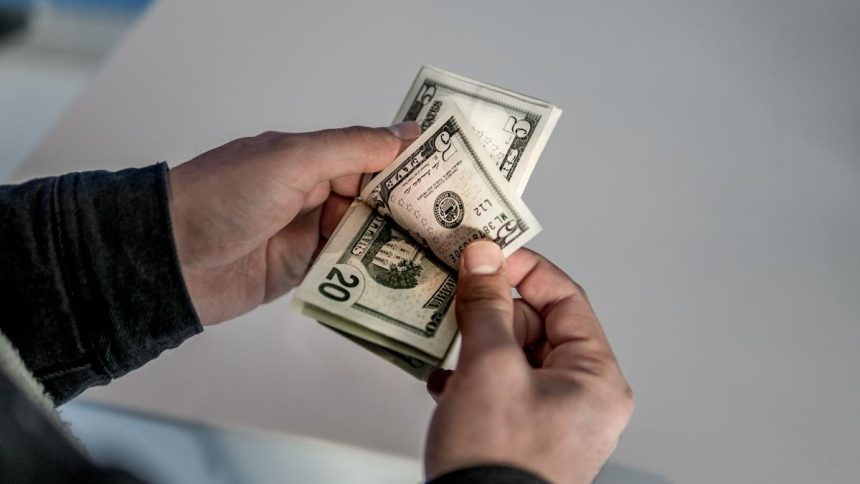Our relationship with money often starts long before we even understand it. Early experiences, family attitudes, and cultural messages can all shape the way we think about money, even if we aren’t aware of it. Some of these beliefs can hold us back, creating stress, fear, or unnecessary limitations. Changing your core money beliefs is a deliberate process that can dramatically improve your financial well-being and your overall sense of freedom. For individuals exploring solutions like credit card debt relief, addressing these underlying beliefs can be just as important as practical financial steps.
Recognizing Limiting Beliefs
The first step in transforming your money mindset is awareness. Take time to identify the beliefs you hold about money, both conscious and unconscious. Do you think money is always scarce? Do you believe that wealth is only for other people, not you? Perhaps you view debt as a permanent state of failure rather than a challenge that can be overcome. Recognizing these limiting beliefs is crucial because they often influence decisions without you realizing it. They can make you avoid opportunities, overspend, or feel guilty about financial success.
Challenging Old Beliefs
Once you’ve identified your core money beliefs, the next step is to question them. Ask yourself if these beliefs are based on facts, personal experience, or assumptions you absorbed from others. For example, the idea that debt defines your worth is a belief, not a fact. Challenging these beliefs means analyzing their origin and assessing whether they serve your life today. Questioning deeply ingrained beliefs can feel uncomfortable, but it is necessary to break free from patterns that limit financial growth and confidence.
Replacing Beliefs With Empowering Alternatives
Changing your mindset is not just about rejecting old beliefs; it’s about actively adopting new ones that support your goals. Empowering money beliefs might include ideas like financial discipline brings freedom, investing in yourself creates long-term value, or budgeting can coexist with enjoyment. Positive money beliefs don’t ignore challenges or oversimplify life, but they give you a framework for action and optimism. For example, believing that debt is a temporary obstacle that can be managed allows you to take practical steps toward credit card debt relief without shame or fear.
Practicing Your New Mindset
Beliefs are reinforced through action. Simply thinking differently is not enough; consistent practice helps cement new patterns in your daily life. Start by making financial decisions that reflect your new mindset. Track spending, create realistic budgets, or set small financial goals. Celebrate progress rather than perfection. Each step you take reinforces your belief that money is a tool rather than a burden, building confidence and creating a sense of control.
Using Cognitive Techniques
Several cognitive techniques can accelerate the process of changing your core money beliefs. Visualization involves imagining yourself making confident financial decisions, achieving goals, and managing money successfully. Affirmations, repeated regularly, can reinforce new empowering beliefs about money. Cognitive reframing allows you to reinterpret financial challenges in ways that highlight growth and opportunity instead of failure. Consistently using these tools helps train your brain to respond to money situations with calm, clarity, and confidence.
Seeking External Support
Changing money beliefs is easier with guidance. Financial coaches, mentors, and therapists can provide perspective and accountability. They can help you uncover deeply held beliefs and replace them with constructive alternatives. Even practical resources, such as courses on financial literacy or consultations for Credit Card Debt Relief, can reinforce your belief that managing money responsibly is achievable and rewarding. External support doesn’t replace personal effort, but it accelerates the process and provides tools for sustained change.
Monitoring and Adjusting
Transforming your money mindset is an ongoing journey. Regular reflection is key. Ask yourself whether your daily decisions align with your new beliefs. If old patterns resurface, don’t panic—view it as an opportunity to practice your new mindset. Adjust your strategies as needed and celebrate milestones, no matter how small. The consistency of reflection and adjustment ensures that your new beliefs are deeply rooted and flexible enough to handle life’s challenges.
Understanding the Ripple Effect
Changing your core money beliefs has effects far beyond your finances. Improved financial confidence can enhance personal relationships, career decisions, and overall well-being. When you believe you are capable of managing money wisely, you may also feel more empowered in other areas of life. This mindset can reduce stress, increase motivation, and allow you to pursue opportunities you might have avoided before. Positive money beliefs create a foundation for a more confident and balanced approach to life.
Commitment to Change
Ultimately, changing your core money beliefs is about commitment. It requires self-awareness, intentional effort, and consistency. The journey can feel challenging, but the results are transformative. By identifying limiting beliefs, challenging them, replacing them with empowering alternatives, practicing them consistently, using cognitive techniques, seeking support, and monitoring progress, you can create a healthier, more confident relationship with money. This foundation will not only support practical financial steps like Credit Card Debt Relief but also improve your overall quality of life.
Changing your money beliefs is not an overnight process, but the investment in your mindset pays long-term dividends. By taking control of the way you think about money, you open the door to financial freedom, personal growth, and a greater sense of confidence and control over your life.














